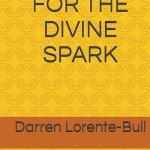I work with people from all different religions as a spiritual counselor and often, I am asked what one must do to be Heathen (or Pagan). Usually this question comes from clients who come to me for spiritual direction, being fairly new to whatever polytheistic faith they’re now following. Most folks who ask this question want to clear cut answers. They want to know that if they do X, Y, and Z, then they’ll be part of the “in-group,” they’ll be Heathen, Pagan, they’ll be doing it “right.” Most of them, going through the tumultuous process of conversion, want to have a clearly defined name by which they can define themselves. They want touchstones to guide them on and into their new path.
Converting to a new faith is difficult. Regardless of the reason for conversion, there is a whole mess of psychological issues that can come up and this is perfectly natural. Religion is a powerful thing and the religion that we were raised in, whatever that might be, is powerfully ingrained in our psyches. It impacts not only the lens through which we view the Gods, but also the way in which we interact culturally, our social values and expectations, and our sense of spiritual and by extension emotional well being. There’s often very subtle guilt associated with the abandonment of one’s childhood faith and all of this, while perfectly normal, can be very difficult to overcome. It can take years of careful self-examination to truly understand all the ways in which our birth religions might impact us. It’s no wonder that new converts struggle with how to approach their new religions.
Some people will say to leave everything of one’s old faith behind but I don’t think that’s practical. Every religion has something useful about it. When one is raised from childhood in a particular faith, the spiritual touchstones of that faith become very deeply ingrained. Why throw that away? I think it far better to simply acknowledge that this is so, that for instance, “Mary was raised Catholic and likes to light candles and pray the rosary.” Since this was a powerful point of spiritual connection for her, I’d probably encourage our fictitious Mary to set up an altar to her new Gods, light candles and use prayer beads with the same regularity with which she worked the rosary. There are purists, particularly within my own faith (Heathenry) that would damn me for such an approach.
My response is simple: is it better to have someone struggling with feelings of guilt, inadequacy, and alienation as they attempt to inculcate themselves with new beliefs and religious culture, or is it better to have them using a solid bridge of practice that already exists? I see no reason to throw the proverbial baby out with the bathwater. We are patterned by our birth religions to approach the Gods in a specific way. Why else do you find the vast majority of Heathenry obsessed with “lore” when they’re reconstructing a tradition that was oral in nature? Well, the majority of Heathens came from Protestant, often fundamentalist denominations of Christianity (and for those that didn’t, we all grew up in an American secular culture that is overwhelming Protestant in its outlook) in which the normative authority of the Bible was all important. We were trained to look for religious authority via the written word. I think that’s “bad” only when it is used to negate other methods of inquiry and other means of establishing a devotional connection.
I tell my clients that the Gods come first. I tell them that what’s important is loving the Gods, expressing that love, and growing into a devotional relationship with the Gods (however that might manifest itself. This too differs with each person). I tell them that whatever tools they might need to use to do that are ok. Certainly Christianity, for instance, has no corner on prayer. Our earliest recorded prayers come from Sumer, from a Priestess of the God Nanna named Enhenduanna. We have numerous surviving prayers, beautiful examples of devotion and praise to various Sumerian Deities. So why not use the practice of prayer to jump start one’s involvement with one’s new faith? I’ll tell you something else though that won’t earn me many supporters in Heathenry: we can learn a lot from how the Christians approach their God. The majority of accessible devotional literature comes from Christianity. Why throw that away? I say: read it, study it, see what is adaptable and useful. See what speaks to you in your new faith. What enables you to connect more fully to the Gods? That, after all, should be what it’s about: connecting to the Gods in some meaningful way that translates itself back into one’s daily life.
That’s what it comes down to for me: what enables you to make that connection more clearly and fully? The only “wrong” that I can see is not doing something out of fear of human response. I support the use of any spiritual or ritual tool that will enable a person to grow in love of the Gods, and to expand their devotional relationship with the Gods. Not everyone is going to be a spirit-worker, mystic, or shaman. But everyone can have a living, thriving, deeply organic faith.
So I encourage those who come to me to engage in ongoing devotional practice in whatever way speaks most strongly to them. We’re not all the same and the ways in which we connect to the Gods will be as varied as our individual experiences have been. There’s a wonderful quote by the Sufi mystic Rumi (that I use ad nauseum) that says: “there are hundreds of ways to kneel and kiss the ground.” I truly believe that. I also believe that the truly important thing is that each person find what works for him or her self.
In the end, it comes down to love and respect. Love of the Gods like love of a human person is something that must be protected and nurtured. The devotional is a relationship like any other and takes the same amount of ongoing attention and work. So I counsel patience (with oneself most of all) and dedication, and most of all respectful attention. With respect, one can never go wrong and best of all, courtesy and respect cost a person nothing. It’s the gift that we can all give, even as we bumble happily along in our searching.















